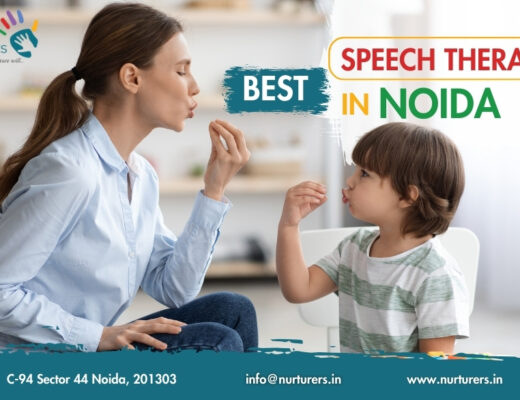Speech therapy is recommended for kids with inherent speech disorders such as articulation disorders. If your child has difficulty in communicating with words, you should take the child to a kids speech therapy center for a quick assessment of the problem. Waiting for the problem to be resolved with development will only lead to speech delays.
Techniques used in speech therapy are developed after assessing the problem. For example, some kids need language intervention by a therapist while others need more intense articulation therapy. Following are the common speech disorders cured by speech therapy:
- Articulation Disorder
It is an inability to properly pronounce specific letters or words. A child could swap, distort, drop, or add letters or words to pronounce difficult letters or words. For example, a child would say “thith” instead of “this”.
- Aphasia
It is a serious problem because it affects a child’s ability to understand others and respond to situations. Also, it can lead to difficulty in reading and writing.
- Dysarthria
It is characterized by slow or slurred speech and it could be due to weakness of facial muscles or an underlying problem in the nervous system. For example, a stroke or facial paralysis can cause this problem.
- Fluency Disorder
The problem is exhibited when a child tries to maintain fluency. Instead of clarity, they start stuttering or cluttering. It seems that their voice is suffocated or blocked and they try to speak faster by merging words to avoid stuttering.
- Resonance Disorder
Obstruction of normal airflow in nasal or oral cavities creates resonance disorder. The obstruction alters the vibrations resulting in serious damage to the voice quality. The problem could be associated with cleft palate or swollen tonsils. A kids speech therapy center can cure this problem.
- Cognitive-Communication Disorder
An injury to the part of the brain that controls speech leads to cognitive-communication disorder. It results in difficulty speaking, problem-solving, reasoning, and memory loss.
- Receptive Disorder
It involves difficulty understanding what your eyes and ears perceive. The brain fails to decode the information leading to a receptive disorder that makes a child uninterested in communicating. Also, the child has a limited vocabulary.
- Expressive Disorder
It is just the opposite of receptive disorder. Here a child has difficulty in expressing their feelings. For example, the child could use sign language or mix words to express themselves.
A speech disorder could be inherent or accidental such as an injury or trauma. Speech is an important milestone and if it is missed, the child should be taken to a speech therapist for assessment and treatment. Luckily early intervention or therapy can bring substantial improvement in the speech of a child.
Find the best speech therapist in Noida to start speech treatment for your child ASAP. The therapist will recommend a treatment plan after a quick assessment of the disorder. The therapy includes interacting through talking and playing. Also, the therapist will use pictures and other objects to stimulate language development in your child.


